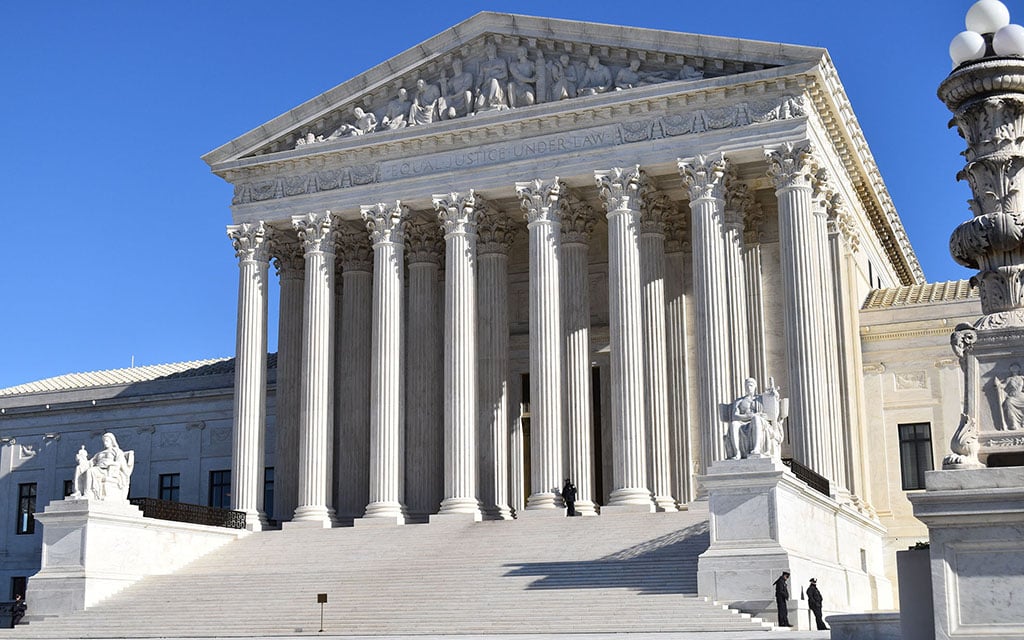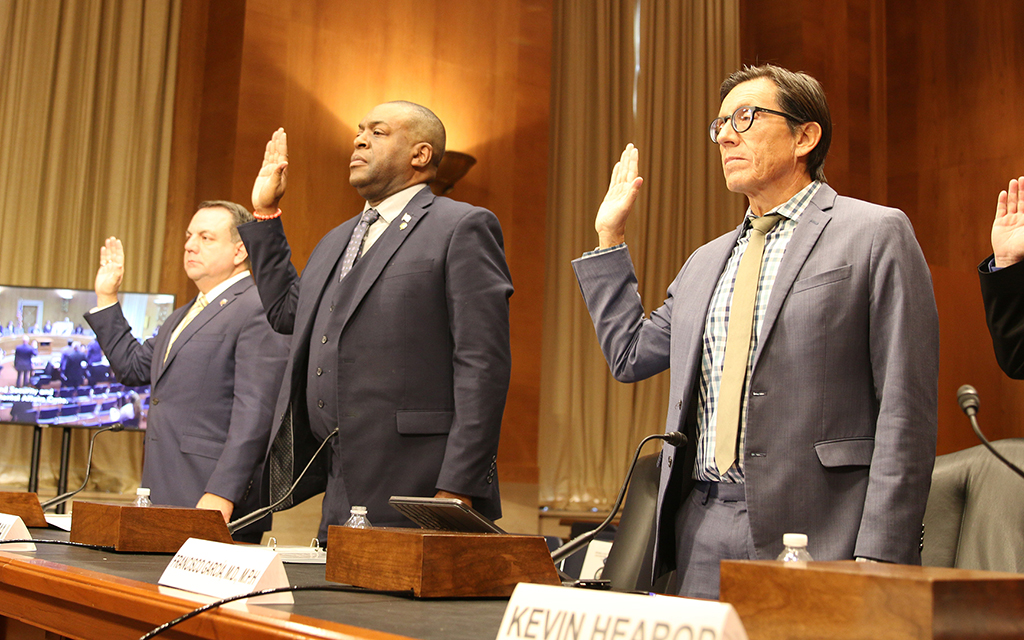
A section of the border wall east of Douglas in 2020, the same year Title 42 was implemented. The pandemic-era immigration rule ended this month, and the Supreme Court on Thursday dismissed an Arizona-led attempt to save Title 42. (Photo by Jerry Glaser/U.S. Customs and Border Protection)
WASHINGTON – The Supreme Court has formally dismissed an Arizona-led effort to preserve Title 42, the pandemic-era immigration restriction that was officially ended by the Biden administration last week.
The court on Thursday dismissed Arizona v. Mayorkas as moot – with two justices saying the court should never have agreed to hear the case in the first place.
The dismissal was widely expected after the court removed the case from its argument calendar in February, when it became clear that the end of the pandemic would mean the end of the controversial border policy. And Arizona Attorney General Kris Mayes had quietly moved the state away from the case, which was started under her predecessor.
Mayes’ office declined to comment Friday on the latest twist in the case. Former Attorney General Mark Brnovich, who led the coalition of 19 states in the lawsuit, could not be reached for comment.
The states, all led by Republican attorneys general, were seeking to head off a Biden administration plan to end Title 42, a COVID-19 policy enacted in March 2020 that allowed border officials turn away migrants on public health grounds.
President Joe Biden promised to end the policy as the pandemic waned – even as the number of migrants stopped at the border was surging to historic highs.
The number of migrants apprehended at the southwestern border rose from 458,066 in fiscal 2020 to 1.7 million in fiscal 2021 and 2.4 million in fiscal 2022, according to Customs and Border Protection data. It said 1.4 million had been stopped in the first seven months of fiscal 2023.
When the administration announced an end to Title 42 in April 2022, saying it was no longer needed to protect public health, the states sued to keep the policy in place. A federal district court in Louisiana agreed and ordered Title 42 extended.
But a group of migrants filed a separate suit in federal court in Washington, D.C., and won, with the judge there ordering an immediate end to Title 42.
The states quickly moved to intervene in the Washington case, arguing that the federal government was not likely to defend the policy. But the states’ request was rejected, sparking the appeal to the Supreme Court.
In a statement then, Brnovich argued that ending Title 42 “will recklessly and needlessly endanger more Americans and migrants by exacerbating the catastrophe that is occurring at our southern border.”
Solicitor General Elizabeth B. Prelogar urged the justices to reject the states’ request, saying that “absent other relevant developments, the end of the public health emergency will (among other consequences) terminate the Title 42 orders and moot this case.”
But the justices voted 5-4 to consider the appeal and put the D.C. ruling on hold – extending Title 42 in the meantime.
Justice Neil Gorsuch called that decision “unwise” in a sharp dissent, in which he said the states were treating the court as a “policymaker of last resort.” He repeated those claims in a statement with Thursday’s dismissal, in which he argued that concerns about a border surge are real but that the border crisis is not a COVID crisis.

The Supreme Court’s decision to dismiss Arizona’s suit to preserve Title 42 was not a surprise, after the court removed the case from its arguments calendar in February. Justices Neil Gorsuch and Ketanji Brown Jackson agreed with the dismissal and said, for different reasons, that the case never should have been considered in the first place. (File photo by Vandana Ravikumar/Cronkite News)
“The court took a serious misstep when it effectively allowed nonparties to this case to manipulate our docket to prolong an emergency decree designed for one crisis in order to address an entirely different one,” Gorsuch wrote.
Two weeks before the scheduled March 1 arguments, the justices took the case off their calendar – presumably because the public health emergency policy was set to expire on May 11.
The court conceded as much Thursday, when it dropped the case and ordered the D.C. court to dismiss it as moot. In the order, Justice Ketanji Brown Jackson said she would have simply dismissed the case as wrongly granted in the first place and left the D.C. Circuit Court’s ruling in place.
Migration advocates did not immediately respond Friday to requests for comment on the ruling. But an official with the Federation for American Immigration Reform said the federal government needs to recognize that lifting Title 42 is unsustainable.
“What they really need to do is start enforcing other measures that the president has at his disposal,” said Ira Mehlman, the FAIR spokesperson. “There’s a whole compendium of laws that the president has just basically chucked in the trash can.”

